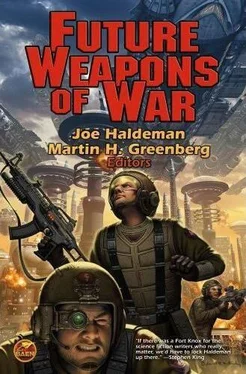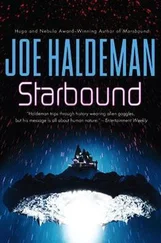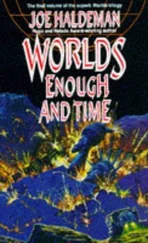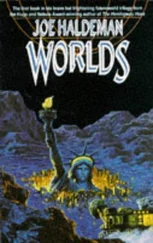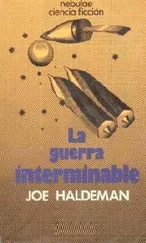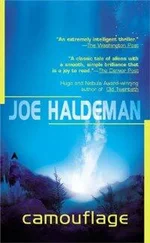The older man gracefully sliced the sandwich in two, placed it on a plain white plate and slid it over. “Because it’s my job, that’s all. It may be my last day and all, but I’ll go out, doing my job. That’s what’s right. And now, if you excuse us, it’s time to leave. Mister President.”
“Thank you, thank you very much,” he said. He picked up the sandwich and looked at the two men, and even though his stomach was grumbling from hunger and that wretched breakfast he had earlier endured, he put his lunch down. He had to know. Had to.
“Can I ask you something, before you leave?” the President asked. The son was bustling around the kitchen, filling up empty cardboard boxes, stacking up cans of food and even putting some utensils to one side. His father nodded and said, “You may, sir, but we do have to get going. This boy’s mom runs a pretty strict ship.”
He was ashamed at what he had to say, but it had to be done. “Tell me, where is everybody?”
The man looked shocked. “You mean, you don’t know?”
“No, I don’t,” he said. “I’m sure I must have been briefed but I can’t remember. There must be some sort of training going on, right? Something that the entire staff has to attend. Is that right?”
For a moment the President thought something was wrong with the older man, for it seemed his eyes had welled up, but instead the man just quickly nodded and said in a gentle voice, “Yes, sir, you’re absolutely right. There’s a training session. On the new sexual harassment code.”
“And you’re here because you already took the training?”
Another quick nod. “That’s right, sir. I’m sure everyone will be back here tomorrow. Back where they belong.”
The President nodded in return, glad that he was at least getting to what in hell had been going on, and also rehearsing in his mind how he would strip off the outer skin of his chief of staff before this day was over, and he found himself asking another question.
“The food here,” he said. “Where are you taking it?”
There was a sharp rattle as the young man dropped a serving spoon, but the older man talked to him in a smooth voice, “We’re doing what you’ve told us to do, sir.”
“You are? And what’s that?”
“Donations, sir,” the man said. “You made it clear in your first month here, that we were to donate extra food items to the Washington soup kitchens. That’s just what we’re doing here. That’s all.”
“Oh,” he said, remembering that what the cook said was true. “You’re absolutely light. Thank you, I’m glad you’re doing it.” He picked up his plate and got up from his seat, and then turned and asked the older man one more question.
“Tell me, do you know anything about computers?”
The younger man glared over at him again, but his father was gently wiping down the counter.
“No. sir, I’m afraid I don’t. I never thought much of them.” The man looked up and stared at him with those moist brown eyes of his. “And what I did think was something you couldn’t print. They can do a lot of good but I always thought there was something wrong about the millions of the richest and brightest in this country, holing up in front of a screen and staring at nothing else, while their neighborhoods crumbled around them. Seems they didn’t care about the streets or jobs or anything else, so long as they could get in front of that screen. It was almost like an addiction. What was on the screen, the blogs, the stories, the games, seemed more real than anything else. But no one ever asked me, and look what happened. So there you go. Sir.”
The President nodded. “Well, thanks again for lunch,” and he started to walk back to the Oval Office, carrying his lunch in his hands.
Out in the corridors again—what was that phrase, corridors of power?—but there wasn’t much power here, just antiques and paintings and old furniture. By the doorway out to the garden the Marine guard was no longer there—probably out to lunch or taking a leak or something—but the three women were still in their office, and as he went by he looked in for a quick second. They were moving in odd fashion, eating with one hand and tapping at the keyboard with the other, and they didn’t even look up at him as he paused in the doorway. Strange.
Back in the Oval Office, he put the plate down on his desk and then got a glass of water from the adjoining bathroom. He ate the turkey sandwich in silence—it was quite good—and the water tasted better than he thought, washing it down. He looked out the window. Smoke was getting thicker.
He checked the clock. Twelve-fifty. That’s it. If the phone didn’t ring or if someone didn’t come by by one o’clock, then he was going to press the panic button by his desk, and the hell with the Post and the consequences.
He went to use the bathroom, and after washing his face and hands, he went back into the office, checked the clock, and stopped.
Voices. Outside.
He smiled. Finally!
He went through the door and into the outer offices, and a group of men were approaching, soldiers it looked like, and he stopped, hand on the doorknob. It must be more serious than he thought.
The soldiers came closer and one saw him and said something to another soldier, and they stopped, staring at him, and the President suddenly felt quite uneasy.
For the soldiers were heavily armed, were wearing unfamiliar uniforms, and they were all Chinese.
An older soldier stepped from the crowd, walking towards him, and the squad followed. The older one looked like an officer, with bright insignia and a holstered sidearm. One of the soldiers had a radio on his back and was talking into a handset. This wasn’t right, not at all, and then—
The Boss key quit, and it started to come back, like a little stream, trickling faster and faster, until it became a flood, overflowing the banks with water, overflowing the mind with information, with memories, my God, the memories. Sprat. Spratly Islands. Out in the South China Sea, a God-forsaken bunch of rocks that were claimed by Japan, South Korea, the Philippines and China, and the rocks weren’t worth shit except they were over rich deposits of oil, natural gas and other minerals. The Chinese started building a base there and started sinking fishermen that approached, claiming it was Chinese territorial waters, and Japan, South Korea, the Philippines and The New York Times and Washington Post started screaming bloody murder, and then…
“Mister President?” the Chinese officer asked, his English quite good, only slightly accented.
“Yes?” he said.
Then the pressures started, to do something, anything, and an election year was coming up and this was a good chance to show that no sir, he didn’t tailor everything for the polls or public opinion, and a naval task force—the aircraft carrier Nimitz and a half-dozen destroyers and cruisers—were sent to the Spratly Islands to show the flag. There were a bunch of scenarios about what might happen—everything from cat-and-mouse games with the task force, to an odd missile or two lobbed into Taiwanese waters, or maybe some dissidents from Hong Kong being shot in the back of the skulls in response to the approach of the task force—but no one had predicted what had actually happened.
The Chinese officer nodded. “That is good, sir. May we see you in your office?”
He couldn’t think of a thing to say.
Obliteration. That’s what happened. Two Long March missiles fired from Lop Nor and within ten minutes, the task force had been vaporized. The Nimitz and her aircraft and her sister ships and thousands of good men and women, turned into radioactive dust and water vapor. Then Japan, South Korea, the Philippines and The New York Times and Washington Post started screaming again, about losing all those lives and risking a nuclear war over a miserable pile of rocks, and his State Department and others tried to talk to the Chinese, tried to get some sort of agreement, some sort of armistice or arrangement, but the Chinese weren’t talking. They were doing. And the last news stories he had read had all said the same thing: the long wait was over. After hundreds of years of humiliation, the Middle Kingdom was re-taking its place in the world.
Читать дальше
